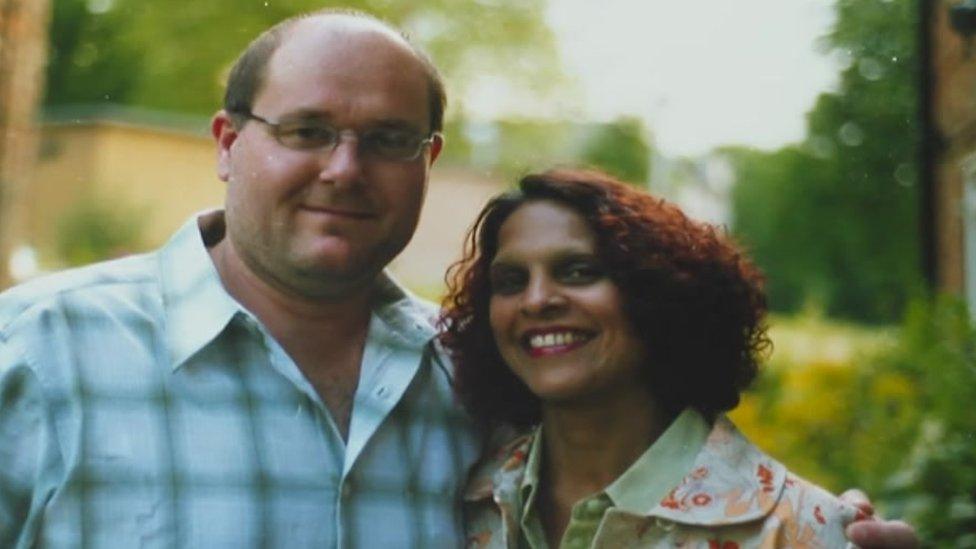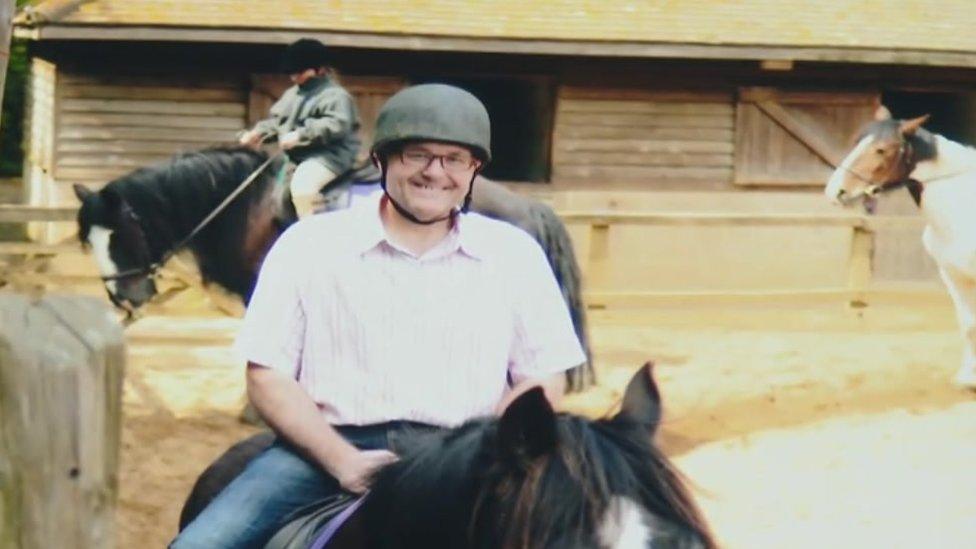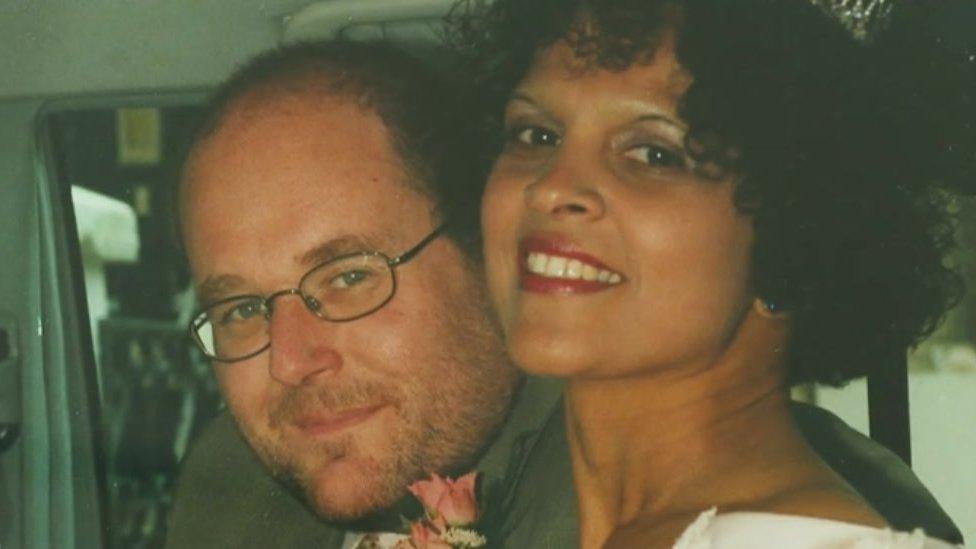Kent NHS trust apologises for husband's mental health care failures
- Published

Pat Jackson had been pleading for help before he died, his wife Amanda says
A widow says her husband would still be alive if he had received treatment for depression.
Pat Jackson, 56, from Broadstairs, Kent, took his own life after "failings in his care", the Kent and Medway NHS and Social Care Trust said.
Mr Jackson's wife, Amanda, said he had been failed by those who should have helped him.
The trust apologised "unreservedly" and said action had been taken to address the failings identified.

Pat Jackson had been successfully treated with ECT previously, his wife says
Mrs Jackson said: "He wasn't himself anymore, and pleading for help when he was ill."
She told BBC South East: "Help never came for him, and he withdrew into a shell."
Mr Jackson had had two previous acute episodes of depression in 2013 and 2016, and was successfully treated with electroconvulsive therapy (ECT), his family said.
In February 2018, he was referred to the Crisis Resolution and Home Treatment team of the Kent and Medway NHS and Social Care Partnership Trust.
While under the trust's care, he tried to take his own life and was treated in hospital.
Just over a week later he was discharged from the Queen Elizabeth the Queen Mother Hospital (QEQM) in Margate, but assessed as high risk.
Mr Jackson took his own life on 22 March, while still waiting for electroconvulsive therapy.
Mrs Jackson said: "We asked for help every day from the time he was diagnosed to the day he died - 42 days."

Pat Jackson says her husband 'loved life and wanted to live'
Helen Greatorex, chief executive of the Kent and Medway NHS and Social Care Trust, told Mrs Jackson that the trust had "clearly failed" her husband.
She wrote: "The trust has accepted that ECT should have been offered to Mr Jackson and that it has recognised that the failure to offer it fell below the high standard of care that we expect to offer.
"[I] offer you my personal and unreserved apology for what was clearly a failing in our care of your husband."
The trust has also made a compensation payment to Mr Jackson's family.
In a statement, a trust spokesperson said: "We apologise unreservedly to Patrick's family for the failings in the care we provided.
"The safety of those we care for is our utmost priority and we know we fell short of that on this occasion."
"We have taken action to address the issues identified in 2018, including significantly improving access to urgent and emergency care."

If you have been affected by any of the issues in this article you can visit the BBC's Action Line for information and support.

Follow BBC South East on Facebook, external, on Twitter, external, and on Instagram, external. Send your story ideas to southeasttoday@bbc.co.uk, external.